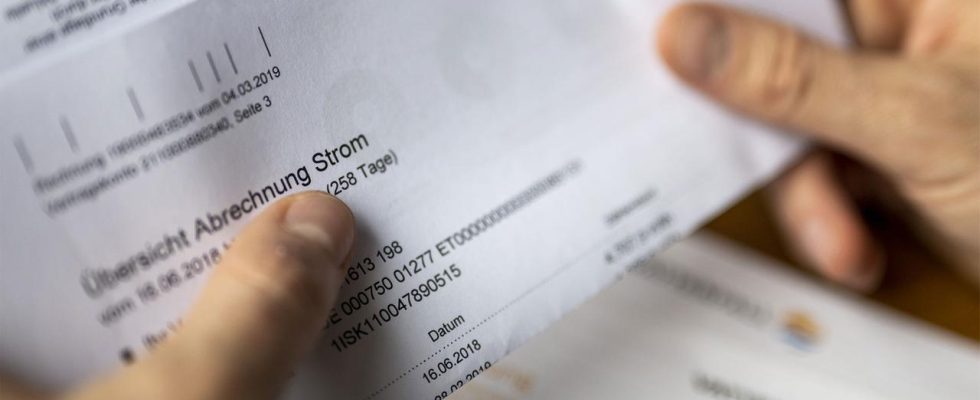After the network fee subsidy is eliminated, the increase in electricity prices could be lower than feared – at least for the time being. But this is not an all-clear; later increases are likely.
Several electricity suppliers have announced that they will not pass on the increase in network fees to their customers for the time being. This is the result of a survey by the dpa news agency among selected utilities and municipal utilities in Germany.
E.ON, which has six million electricity customers in Germany, is one of the suppliers who initially do not want to impose a price increase. However, the company did not rule out the possibility of an increase later. There is currently no decision. The regional suppliers in Leipzig, Dresden, Hanover and Nuremberg also announced that they would keep prices stable despite the higher network fees.
Network fees are passed on
In December, in the wake of the budget crisis, the federal government decided to cancel the federal subsidy for network fees amounting to 5.5 billion euros in 2024. The four major long-distance line operators Tennet, Amprion, 50Hertz and Transnet BW then announced that they would more than double their network fees from 3.1 to 6.4 cents per kilowatt hour at the turn of the year. The network fees are usually passed on to the electricity prices.
The fact that the higher network fees, which have been in effect since January 1st, were not immediately added to consumers’ electricity prices is due to the short-term nature of the decision: it was only on December 13th that the traffic light coalition decided to cancel the subsidy for the electricity network, the long-distance line operators We then increased the network fees at the turn of the year.
Because of the short deadline, it was not possible for the suppliers to pass this on to their customers as early as January 1st, said Kerstin Andreae, the general manager of the Federal Association of the Energy and Water Industry (BDEW). In basic care, increases would have to be announced six weeks in advance, and in other contracts usually at least a month in advance.
“The price of electricity will rise”
In detail, several suppliers are initially keeping prices stable. The Leipziger Stadtwerke, Enercity from Hanover and SachsenEnergie from Dresden then explained that they wanted to forego an increase completely. N-Ergie from Nuremberg also assured that it would not pass on the increased network fees for the time being.
In individual cases, providers even want to lower prices: the Dortmund utility DEW21 on March 1st for basic services, the Frankfurt am Main-based Eon subsidiary Süwag on May 1st.
RheinEnergie from Cologne and the Stadtwerke Göttingen, however, announced that they would increase prices on April 1st. Both said that the increased network fees would be passed on in full to the customers. However, most of the 26 suppliers surveyed by the dpa did not yet provide any specific information. However, a spokesman for the Munich municipal utility company added: “One thing is already clear: the price of electricity will rise.”
BDEW expects higher prices
BDEW Managing Director Andreae assumes that most suppliers will make up for the increase soon. The fact that some suppliers are still keeping prices stable or even lowering them was explained by the recent fall in procurement costs. “Since the procurement strategies of energy suppliers are very different, in individual cases cheaper procurement costs may be able to partially compensate for the increased network fees.”
According to calculations by the IT service provider Enet, which specializes in energy companies, the increase in network fees is also less impactful than feared: Of the 3.3 cents per kilowatt hour that was added to long-distance lines, local distribution networks on which households depend The company from Hückelhoven in North Rhine-Westphalia calculated an average of just 1.1 cents after evaluating the regional price lists. This means that the increase for private customers will be less severe than initially feared.
On average, for a typical family household with 3,500 kilowatt hours of annual consumption, this means an additional burden of almost 38 euros per year. But that was significantly less than many had initially feared.

